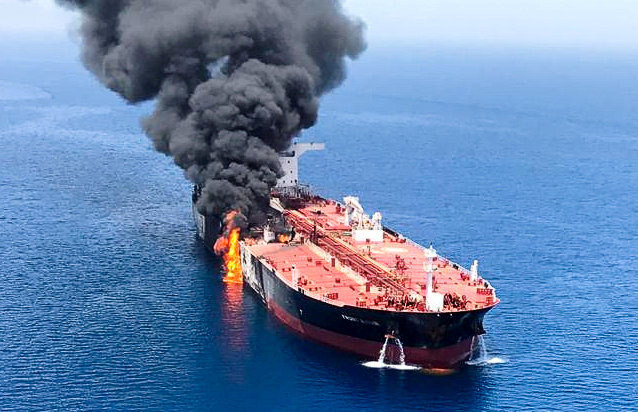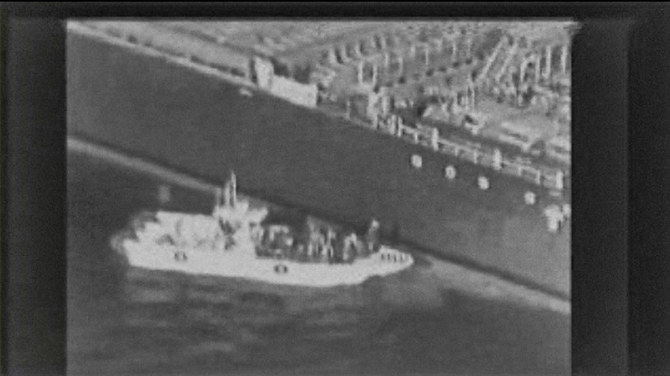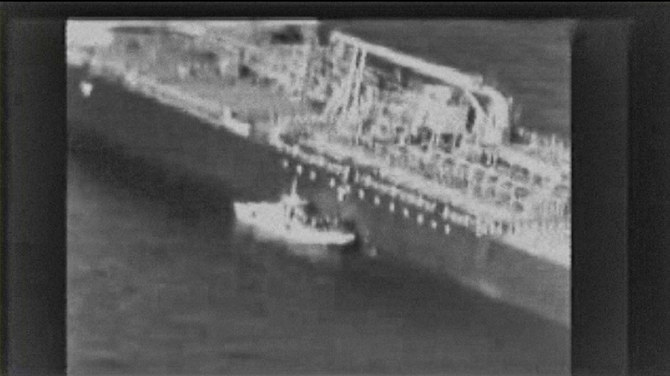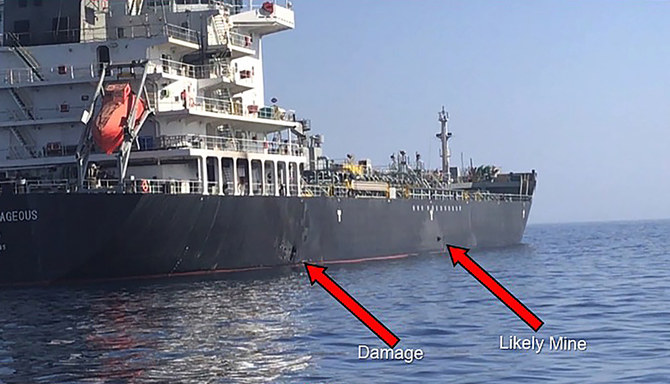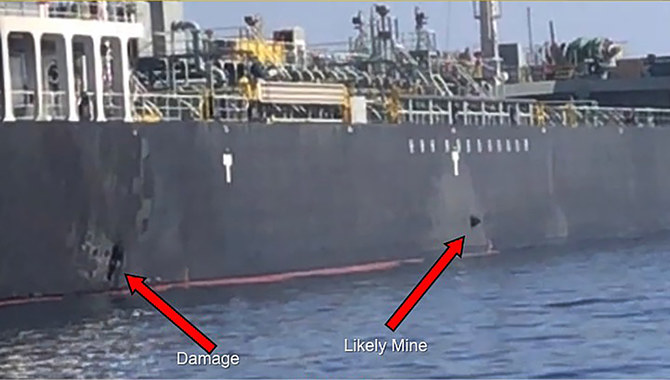WASHINGTON, DUBAI: Calling Iran “a nation of terror,” US President Donald Trump on Friday publicly accused the country of responsibility for recent attacks on oil tankers near the strategic Strait of Hormuz. Trump said Iran’s culpability was “exposed” by the US.
Britain also blamed Iran, saying no other state or non-state actor could have been responsible.
British Foreign Secretary Jeremy Hunt called on Iran to stop all forms of destabilizing activity.
“These latest attacks build on a pattern of destabilizing Iranian behavior and pose a serious danger to the region,” he said.
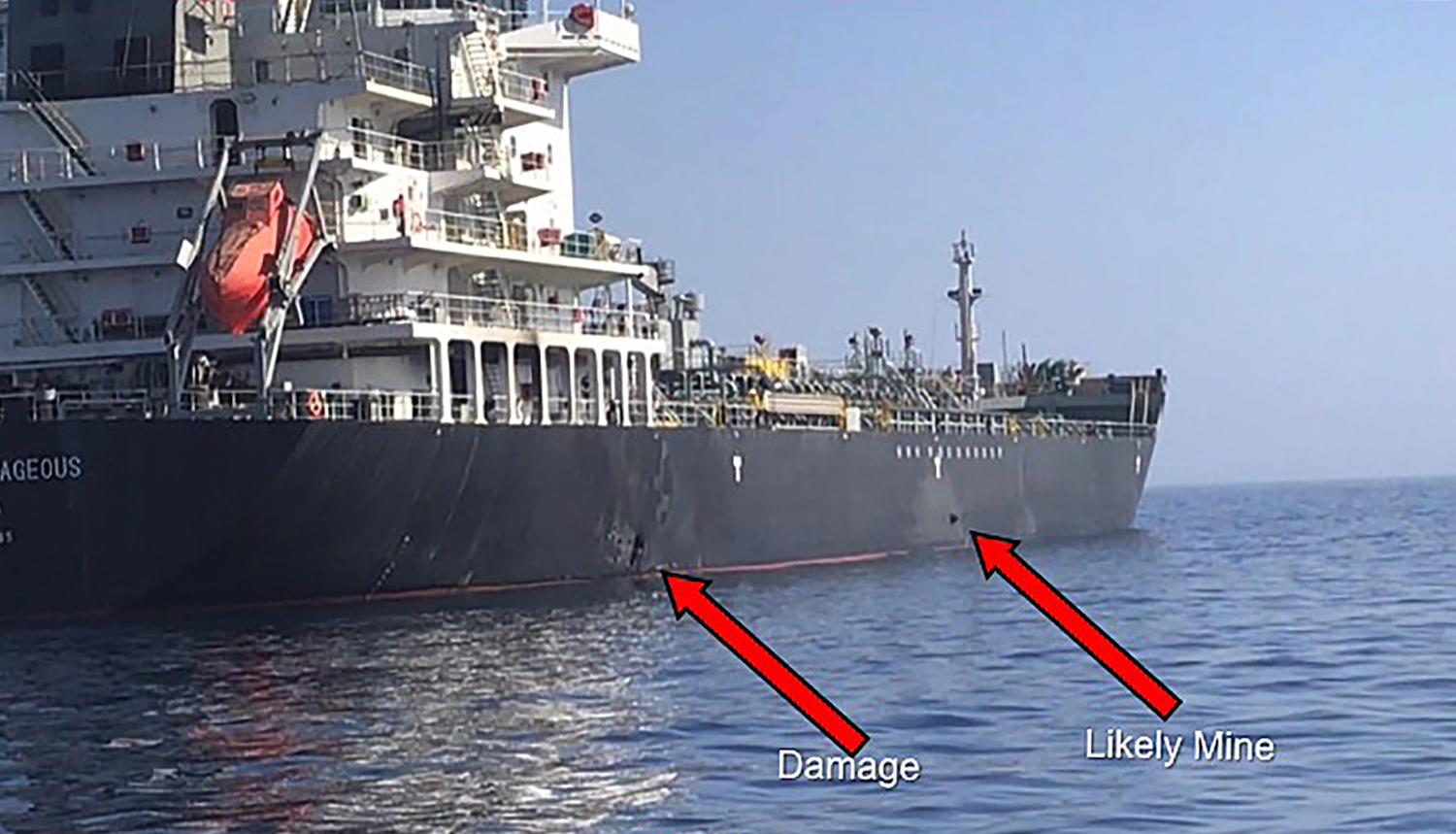
In this Powerpoint slide provided by US Central Command damage from an explosion, left, and a likely limpet mine can be seen on the hull of the civilian vessel M/V Kokuka Courageous in the Gulf of Oman, June 13, 2019, as the guided-missile destroyer USS Bainbridge (DDG 96), not pictured, approaches the damaged ship. (AFP /US NAVY)
US Central Command released footage it said shows Iran’s Revolutionary Guard removing an unexploded limpet mine from the Japanese-owned tanker Kokuka Courageous.
“Iran did do it,” Trump told the “Fox and Friends” show. “You know they did it because you saw the boat. I guess one of the mines didn’t explode and it’s probably got essentially Iran written all over it.”
Trump dismissed previous threats by Tehran that in case of conflict it could block the Hormuz Strait — a narrow seaway vital to the world’s oil supplies.
HIGHLIGHTS
• Britain says no other state or non-state actor could have been responsible.
• The UAE calls tanker attacks a ‘dangerous escalation.’
• UN chief Antonio Guterres calls for an independent probe.
“They’re not going to be closing it,” he said. Trump said the US has been “very tough on sanctions. They’ve been told in very strong terms we want to get them back to the table.”
The black-and-white video of the Iranians alongside the Kokuka Courageous came after its crew abandoned ship after seeing the undetonated explosive on its hull, said Capt. Bill Urban, a spokesman for CENTCOM.
U.S. Central Command Statement on June 13 Limpet Mine Attack in the Gulf of Oman. https://t.co/9S9s3tqHST pic.twitter.com/d71d7d0HOK
— U.S. Central Command (@CENTCOM) June 14, 2019
In the video, the boat from Iran’s Revolutionary Guard pulls alongside Kokuka Courageous at 4:10 p.m. on Thursday. The Iranians reach up and grab along where the limpet mine could be seen in the photo. They then sail away.
A US official said Iranian military fast-boats in the Gulf of Oman were preventing two privately owned tugboats from towing away the Norwegian-owned Front Altairan oil tanker.
UN Secretary-General Antonio Guterres called for an independent investigation to establish the facts.
Guterres said he was available to mediate if the parties agreed, however he added that “at the present moment we don’t see a mechanism of dialogue possible to be in place.” Guterres said the world could not afford a major confrontation in the Gulf.
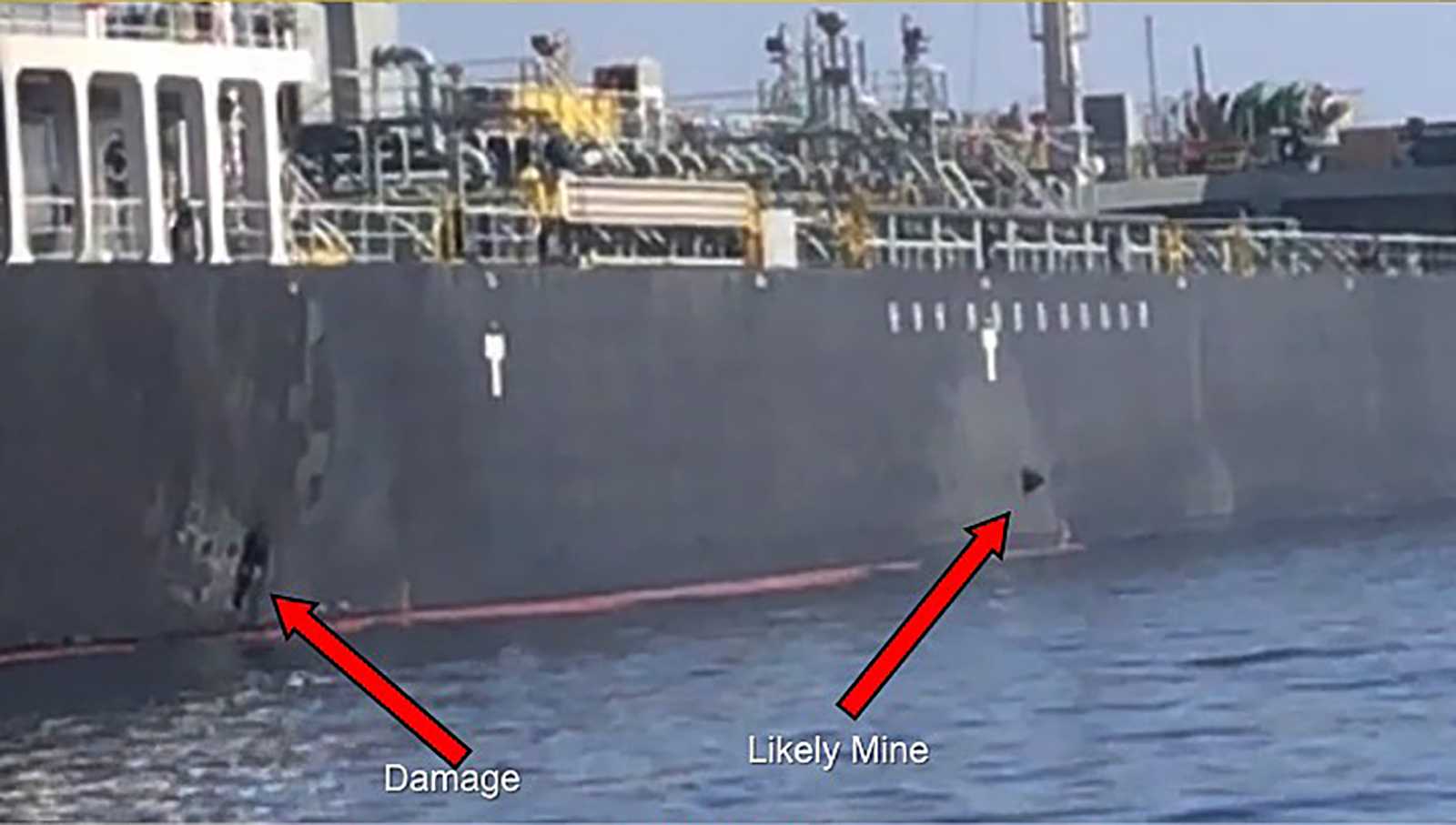
In this Powerpoint slide provided by US Central Command damage from an explosion, left, and a likely limpet mine can be seen on the hull of the civilian vessel M/V Kokuka Courageous in the Gulf of Oman, June 13, 2019, as the guided-missile destroyer USS Bainbridge (DDG 96), not pictured, approaches the damaged ship. (AFP /US NAVY)
The UAE said that the attacks just weeks after four ships were damaged off the UAE marked a “dangerous escalation.”
“The attack against the tankers in the Gulf of Oman is a worrying development and a dangerous escalation,” Anwar Gargash, UAE minister of state for foreign affairs, tweeted.
In another tweet, Gargash said Iranian Foreign Minister Mohammad Javad Zarif’s “credibility (is) diminishing. Public relations is no real substitute to constructive policies. De-escalation in (the) current situation requires wise actions not empty words.”
Oil prices have surged in response to the geopolitical tension.
Saudi Energy Minister Khalid Al-Falih said the Kingdom was monitoring the situation with “great concern.” He “called upon the international community to assume its joint responsibility and take firm action to secure maritime traffic in the region’s waterways.”


